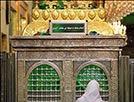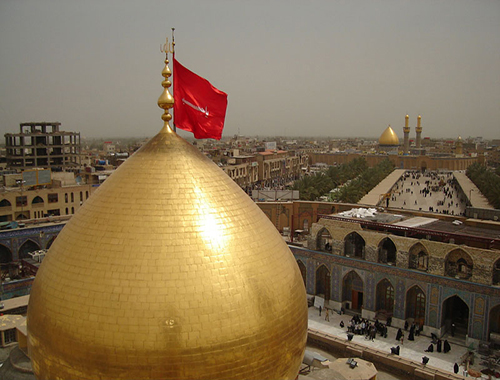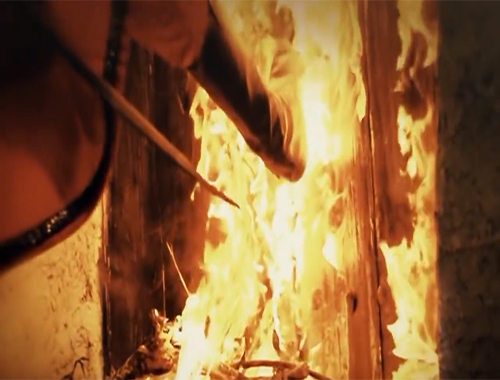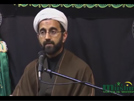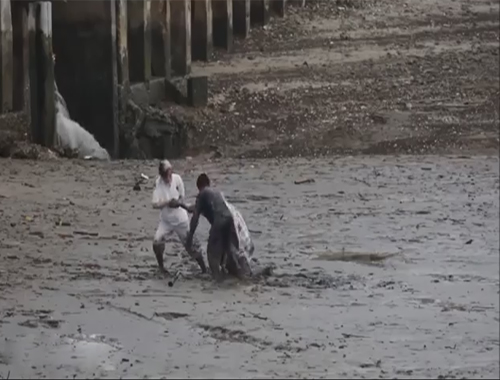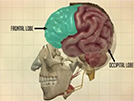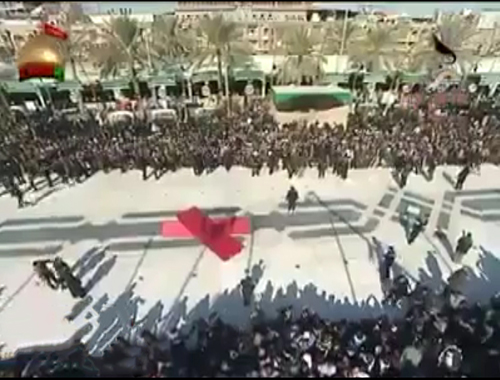3. Yazīd’s demand for Bay‘ah
- Details
- Hits: 2403
3. YazÄ«d’s demand for Bay‘ah
Paying allegiance (bay‘ah) was an old Arab practice which was carried out in important matters such as that of kingship and governorship. Those who were ruled, and especially the well known among them, would give their hand in allegiance, agreement and obedience to their king or prince and in this way would show their support for his actions. Disagreement after allegiance was considered as disgrace and dishonor for the people and, like breaking an agreement after having signed it officially, it was considered as a definite crime. Following the example of the Holy Prophet, people believed that allegiance, when given by free will and not through force, carried authority and weight.
Mu’Äwiyah had asked the wellknown among the people to give their allegiance to Yazid, but had not imposed this request upon Imam Husayn. He had especially told Yazid in his last will that if Husayn refused to pay allegiance he should pass over it in silence and overlook the matter, for he had understood correctly the disastrous consequences which would follow if the issue were to be pressed. But because of his egoism and recklessness, Yazid neglected his father’s advice and immediately after the death of his father ordered the governor of Medina either to force a pledge of allegiance from Imam Husayn or send his head to Damascus.
After the governor of Medina informed Imam Husayn of this demand, the Imam refused to accept the demand and overnight started with his family toward Mecca. He sought refuge in the sanctuary of God which in Islam is the official place of refuge and security. This event occurred toward the end of the month of Rajab and the beginning of Sha’ban of 60 A.H. For nearly four months Imam Husayn stayed in Mecca in refuge. This news spread throughout the Islamic world. On the one hand many people who were tired of the inequities of Mu’awiyah’s rule and even more dissatisfied when Yazid became caliph, corresponded with Imam Husayn and expressed their sympathy for him. On the other hand a flood of letters began to flow, especially from Iraq and particularly the city of Kufa, inviting the Imam to go to Iraq and accept the leadership of the populace there with the aim of beginning an uprising to overcome injustice and inequity. Naturally such a situation was dangerous for Yazid.
The stay of Imam Husayn in Mecca continued until the season for pilgrimage when Muslims from all over the world poured in groups into Mecca in order to perform the rites of the hajj. The Imam discovered that some of the followers of Yazid had entered Mecca as pilgrims with the mission to kill the Imam during the rites of hajj with the arms they carried under their special pilgrimage dress (ihram).
The Imam shortened the pilgrimage rites and decided to leave. Amidst the vast crowd of people he stood up and in a short speech announced that he was setting out for Iraq. In this short speech he also declared that he would be martyred and asked Muslims to help him in attaining the goal he had in view and to offer their lives in the path of God. On the next day he set out with his family and a group of his companions for Iraq.
Imam Husayn was determined not to give his allegiance to Yazid and knew full well that he would be killed. He was aware that his death was inevitable in the face of the awesome military power of the Umayyads, supported as it was by corruption in certain sectors, spiritual decline, and lack of will power among the people, especially in Iraq. Some of the outstanding people of Mecca stood in the way of Imam Husayn and warned him of the danger of the move he was making. But he answered that he refused to pay allegiance and give his approval to a government of injustice and tyranny. He added that he knew that wherever he turned or went he would be killed. He would leave in order to preserve the respect for the house of God and not allow this respect to be destroyed by having his blood spilled there.

